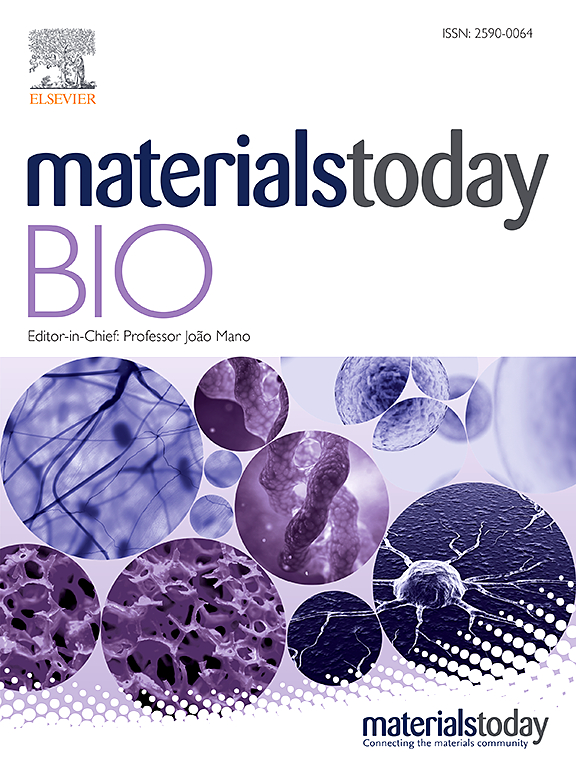K+-H+ coupling strategy for immune regulation and bone defect repair
IF 8.7
1区 医学
Q1 ENGINEERING, BIOMEDICAL
引用次数: 0
Abstract
Ion homeostasis is crucial for maintaining cell function. Potassium ion (K+) is one of the most important cations in the human body, and it plays key role in maintaining biological activities and cellular functions, including the intricate balance of ion homeostasis that underpins both physiological and pathological processes. This study explored a novel role of K+ ions in regulating immune cell function and promoting tissue repair, especially in macrophage-mediated environments after severe tissue injury. We designed and synthesized a platelet-liposome vesicles loaded KHCO3 (KHCO3@PLV) that precisely delivered potassium bicarbonate to the site of injury extracellular after intravenous injection; then, precise ultrasound-triggered K+ release regulated extracellular K+ concentrations in the local macrophage environment. These effects collectively validate the K+-H+ coupling strategy - a novel mechanism whereby extracellular K+ elevation induces intracellular pH modulation, subsequently activating the AMPK/Nrf2 axis to reprogram macrophage metabolism and facilitating tissue regeneration through resolution of chronic inflammation. The main conclusion of the study is that an elevated extracellular K+ environment, which is an innovative treatment, is a potentially effective strategy for regulating immune responses and promoting repair after severe tissue injury.

求助全文
约1分钟内获得全文
求助全文
来源期刊

Materials Today Bio
Multiple-
CiteScore
8.30
自引率
4.90%
发文量
303
审稿时长
30 days
期刊介绍:
Materials Today Bio is a multidisciplinary journal that specializes in the intersection between biology and materials science, chemistry, physics, engineering, and medicine. It covers various aspects such as the design and assembly of new structures, their interaction with biological systems, functionalization, bioimaging, therapies, and diagnostics in healthcare. The journal aims to showcase the most significant advancements and discoveries in this field. As part of the Materials Today family, Materials Today Bio provides rigorous peer review, quick decision-making, and high visibility for authors. It is indexed in Scopus, PubMed Central, Emerging Sources, Citation Index (ESCI), and Directory of Open Access Journals (DOAJ).
 求助内容:
求助内容: 应助结果提醒方式:
应助结果提醒方式:


